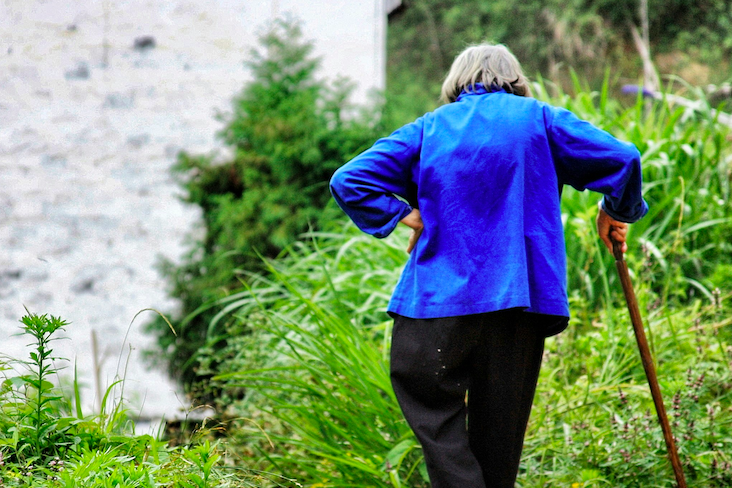
May 13, 2024
 Chastagner Thierry/Unsplash
Chastagner Thierry/Unsplash
The five-year survival rate for older adults who break their hips is worse than the overall rate for cancer, according to a new study from Canada. Fractured hips are most commonly caused by falls.
Older adults that break their hip bones are less likely to be alive five years later than if they had been diagnosed with cancer, according to a new study that underscores the severity of falls.
The study of nearly 100,000 adults older than 65 found that less than one-third of men and about one-half of women survived five years after a hip fracture. The survival rates were only marginally better for those who fractured their spines.
By contrast, the study noted the five-year cancer survival rate is 64% for adults 60-79 and 43% for those 80 and older. For prostate cancer, five-year survival rate is 94% in men of any age; the breast cancer rate is 89% in women of any age.
Though scientists have gathered an abundance of information on mortality outcomes in patients older 50, the survival rates for bone fractures are not often available to clinicians and their patients. But the Centers for Disease Control and Prevention notes that it is hard for older adults to recover from hip fractures; they often are unable to live on their own.
More than 300,000 U.S. residents are hospitalized each year with hip fractures, according to the CDC. The vast majority – 95% – are caused by falls – typically by falling sideways. Women are three times more likely to break their hips than men; they're also more likely to have osteoporosis, which weakens bones.
The study, published in JBMR Plus, used data from the public health care system in Ontario. The participants each suffered fractures tied to osteoporosis. Women, who made up 73% of the study population, had a "significantly higher" risk for fractures, but they generally had better survival rates than men. The oldest participants, who were over 85, had the worst prognoses following fractures.
Researchers found that the greatest reduction in survival occurred within the first month after a fracture, which underscores that initial month to be an important period for doctors to intervene.
"This large study of Canadians over 65 strongly demonstrates that survival most dramatically declined within one month after most types of fracture, with a five-year survival being similar to or worse than some common cancers," said Jacques Brown, the study's lead author and a Laval University medicine professor. "These observations highlight the urgency to change our attitude towards these patients and offer them secondary prevention interventions before hospital discharge."
Falls are the top cause of injury among the people 65 and older, according to the CDC. One in four older adults fall each year in the U.S., and 1 of 5 falls causes an injury, like broken bones. Older adults have a higher risk of injury from falling due to age-related declines in the strength and resiliency of muscle, bone and other tissues.
To reduce the risk of falls, the CDC offers the following recommendations:
• Talk with a health care provider. If you feel unsteady, talk to a doctor – and inform your doctor immediately if you fall. Also, have your doctor or pharmacist review any medications you take because some medicines or combinations of medicines can make you sleepy or dizzy. Ask your doctor about taking vitamin D supplements to improve bone, muscle and nerve health. Furthermore, get your eyes and feet checked yearly.
• Exercise. A lack of exercise can lead to weakness, which can increase the likelihood of falling. You can lower your chances of falling by engaging in exercises like Tai Chi, which improve balance and strengthen your legs.
• Make your home safer. Remove objects that are tripping hazards from stairs and other walkways. Get rid of small, throw rugs that could slip, or use double-sided tape to keep them in place. Put nonslip mats in the shower and add grab bars next to the tub and toilet. Keep frequently used items in cabinets you can reach without using a step stool.
Follow Franki & PhillyVoice on Twitter: @wordsbyfranki
| @thePhillyVoice
Like us on Facebook: PhillyVoice
Have a news tip? Let us know.